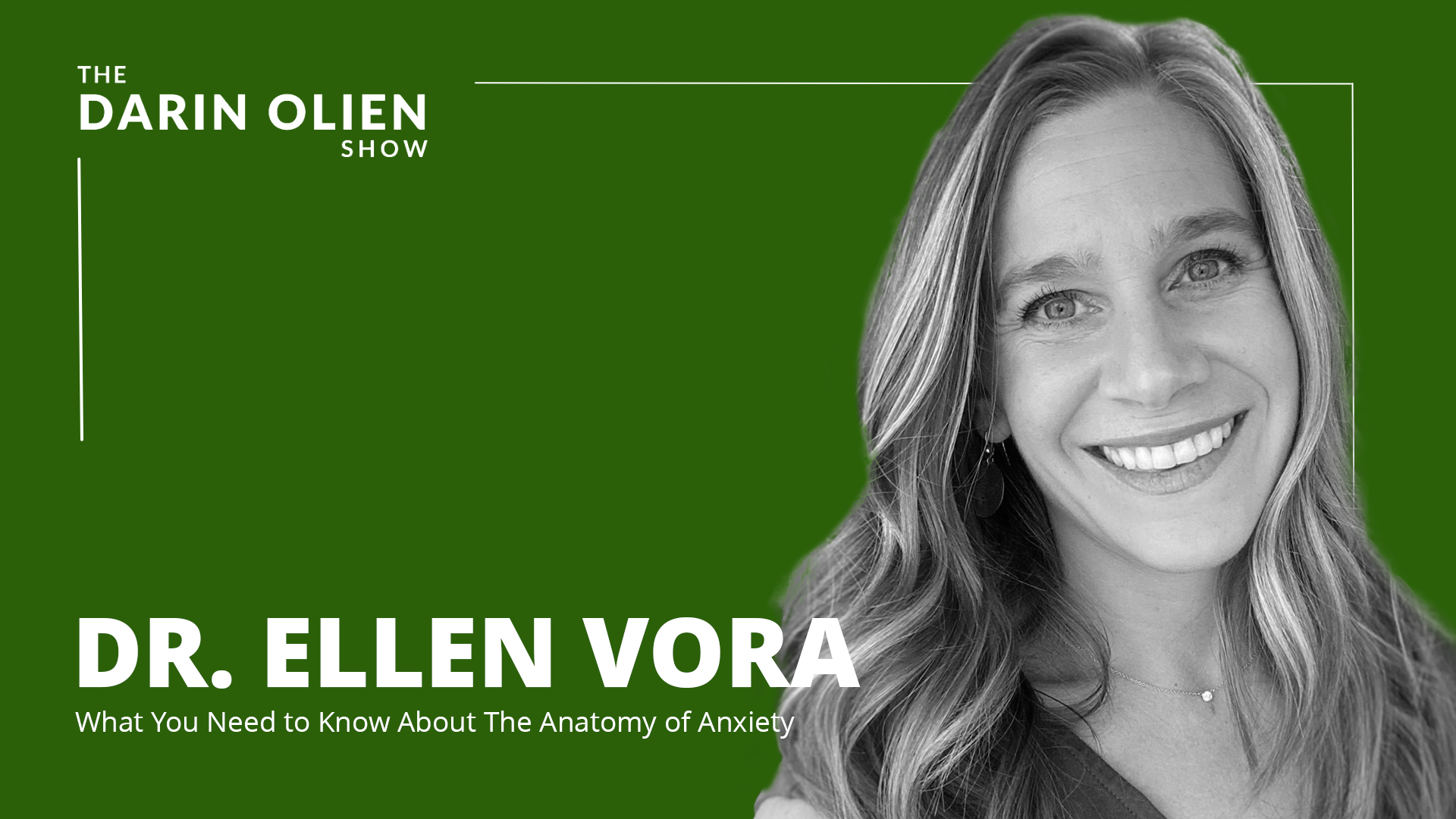05 Apr What You Need to Know About The Anatomy of Anxiety | Dr. Ellen Vora

Do you feel like there aren’t enough solutions for mental health?
In this episode of The Darin Olien show, I chat with Dr. Ellen Vora about the anatomy of anxiety. While most of us believe that we have a predisposition to certain mental health illnesses due to our genetics, this isn’t necessarily true. The truth is that anxiety and other similar types of disorders are activated by environmental stressors, which then pull the trigger on genetics. Thus, understanding how to create an environment that is beneficial to your mental health and not detrimental to it is the first step to ensuring the production of serotonin.
We also chat about the two different types of anxiety and why one is considered to be false anxiety and the other to be true-form anxiety. Dr. Ellen Vora dives into the different pillars of health you should address before you turn to big pharma to feel better.
Ellen Vora, MD is a board-certified psychiatrist, acupuncturist, and yoga teacher, and she is the author of The Anatomy of Anxiety. She takes a functional medicine approach to mental health—considering the whole person and addressing imbalance at the root. Dr. Vora received her B.A. from Yale University and her M.D. from Columbia University.
Key Takeaways:
- You aren’t born with mental health issues. What you are born with, however, are the genetics that may play a part in the development of mental health concerns such as anxiety and depression. The common misconception when it comes to the link between anxiety and genetics is that one’s genetics are what triggers anxiety. In reality, genetics do not do such a thing; they only pull the trigger when your physiology is already out of whack and under stress. Genetics only runs with what it is given. Thus, there is hope for those who may feel like they can’t escape what may feel like a never-ending cycle of anxiety. It’s only a question of pinpointing what environmental factors need to be adjusted.
- When we take a close look at what anxiety is, we can see that there are two different types. First, there is false anxiety. This is when the anxiety you are experiencing is due to a biological response to your physiology being affected by certain physical stressors that have been building up in your day-to-day. This could be an unstable sleep routine, overconsumption of caffeine, or overconsumption of sugar. Overall, you shouldn’t be experiencing this type of anxiety. The second type of anxiety is called true anxiety. This is the type of stress that you shouldn’t be pathologizing, suppressing, or can diet your way out of. It’s your true north, asking you to slow down and pay attention to what’s happening within you. There’s usually a call to action you need to act upon to go back into alignment with yourself.
- The modern approach to anxiety is not completely irrelevant. There are some advantages to taking prescription medication in some cases. However, modern-day medicine isn’t the best-suited place to turn to when you’re truly looking to get rid of exaggerated levels of anxiety as they often look to diagnose and treat rather than cure. What’s important to do is to look at your health from a holistic point of view, and work from the outside towards the inside, not the other way around.
BREAKDOWN
04:12: About Anxiety
06:22: When did Dr. Ellen’s interest in anxiety start?
11:22: Why did Dr. Ellen write her book about mental health?
16:18: Are doctors equipped to take care of mental health?
20:44: How are the pillars of health related to mental health?
25:02: What are the two different types of anxiety?
35:00: What do you need to know about the anxiety process?
37:49: Are you destroying your health for pleasure?
39:30: What do we need to do to protect our health?
42:40: How is the attention economy affecting our mental health?
44:29: How does a day in life look like for Dr. Ellen?
48:51: What was Dr. Ellen not thought at medical school about spirituality?
53:41: Why does society think that crying isn’t accepted?
56:23: Where can you learn more about Dr. Ellen?
LINKS
Find more from Darin:
Website: https://darinolien.com/
Instagram: https://www.instagram.com/Darinolien/
Down to Earth: https://darinolien.com/down-to-earth/
Find more from Dr. Vora:
Website: https://ellenvora.com/
Instagram: https://www.instagram.com/ellenvoramd/
SPONSORS
THANK YOU TO OUR SPONSORS:
Shop Barukas and use code DARIN10 to save 10% on your order: https://barukas.com/discount/DARIN10
Shop Therasage and use code DARIN to save 15% on your purchase: https://therasage.com/pages/shop
Podcast: Play in new window | Download
Subscribe: RSS


Sorry, the comment form is closed at this time.